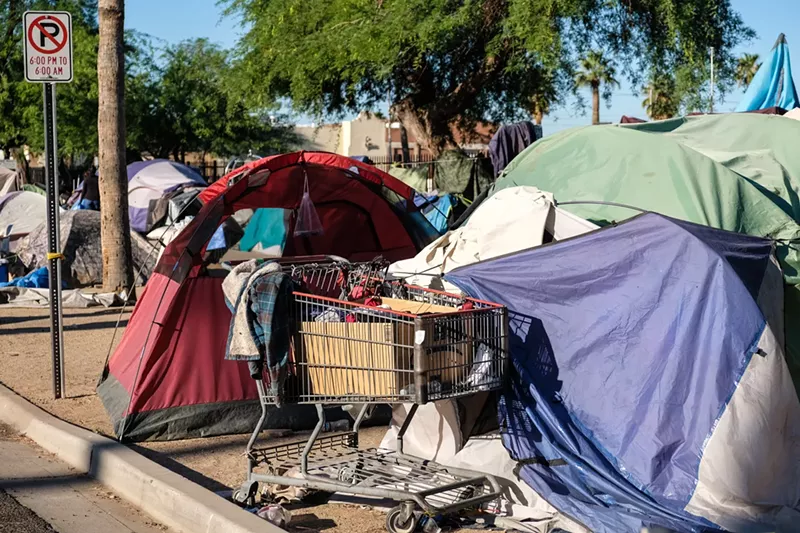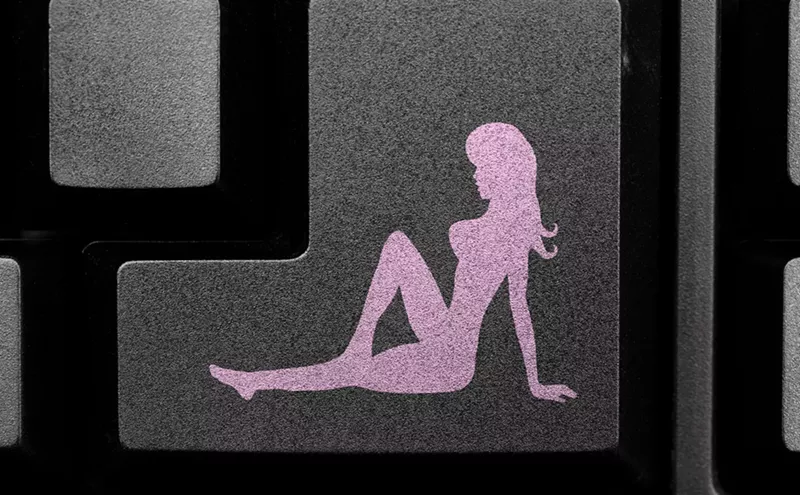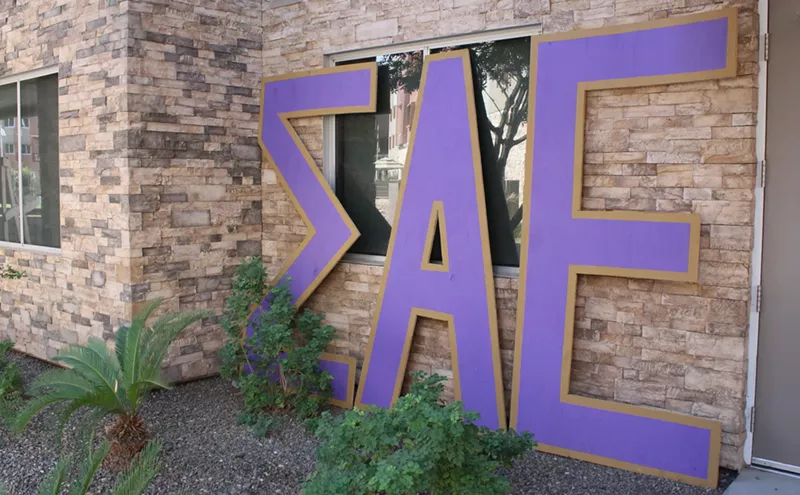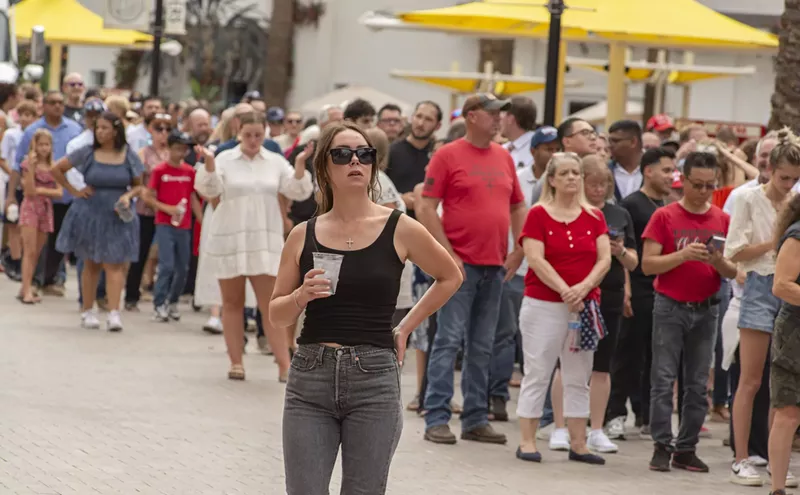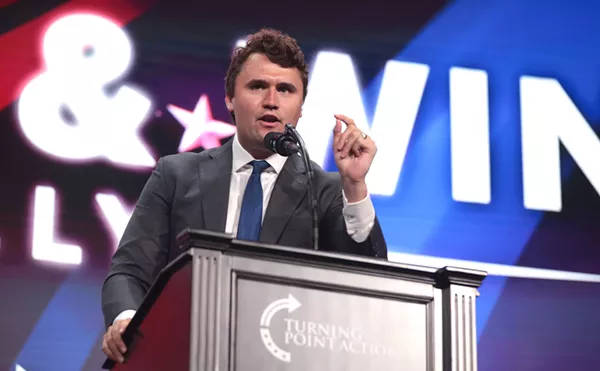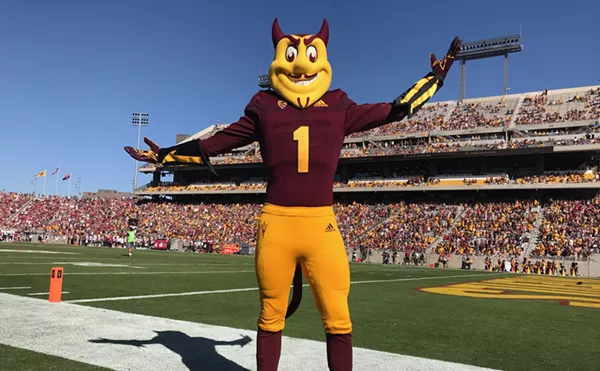A week after an annual count revealed the homeless population in Phoenix remains steady at around 7,000, the council passed a measure to criminalize and potentially crack down on more forms of public camping. The updated ordinance, approved in an 8-0 vote Wednesday, makes it illegal for anyone to camp within 500 feet of a school, child care facility, shelter or city-owned park. It takes effect on Sept. 1.
The measure was needed, according to councilmembers Ann O’Brien and Jim Waring, to protect children and keep unhoused people away from them. “That’s what this ordinance is for,” O’Brien said during the meeting. “It’s so that no child must walk past a line of tents on their way to school or play on a playground with tents pressed up against their school fence.”
But homeless advocates say the measure does little to actually help homelessness. Frank Urban, who spent four years unhoused and now is an organizer with Fund for Empowerment, told the council that “arresting the homeless and telling them to leave multiple times just isn’t working.” Criminalizing camping in one place doesn’t find unhoused people homes, he said. It just forces unhoused people to camp elsewhere.
“We get up, we leave. We go to a different place. They tell us to get up and leave again. We go to a different place,” Urban said. “When is the cycle going to stop?”
Urban was one of several community organizers and advocates for Phoenix’s vast homeless population who attended the council meeting to speak out against the change. Many pointed out the lack of low-barrier solutions for people who are living with disabilities, experiencing mental health challenges or unable to instantly commit to sobriety from drugs
In particular, advocates said aspect of the new ordinance will make it more difficult for unhoused people to find necessary resources. By banning camping near shelters, O’Brien said, the council aimed to give people in those shelters “a higher chance of success by not being surrounded by those encampments.” Elizabeth Venable, a co-founder of Fund for Empowerment, told Phoenix New Times that the shelter camping ban will instead make life particularly exhausting for unhoused people.
“Part of the reason why people would be proximate to (Central Arizona Shelter Services) or other agencies in the Zone is because they have to rely on these agencies for many different resources,” Venable said. “A lot of them do have mobility issues. Some shelters, including CASS, will reject people on the basis of having physical disabilities because they don’t have the capacity to care for them.”
Though the vote was unanimous, some councilmembers seemed to recognize how little the new measure does to mitigate the homelessness crisis. Councilmember Laura Pastor, who ultimately supported the measure, worried about the city criminalizing being unhoused and exacerbating the cycle of poverty.
“We’re in that cycle already,” Pastor said during the meeting. “The courts are going to get overloaded. They’re already overloaded. We’re already hearing that the courts cannot handle the level of activity that is coming in."
As a result, Pastor said, unhoused people are arrested, levied a fine and then "they’re off on their merry way, and we start all over again.”
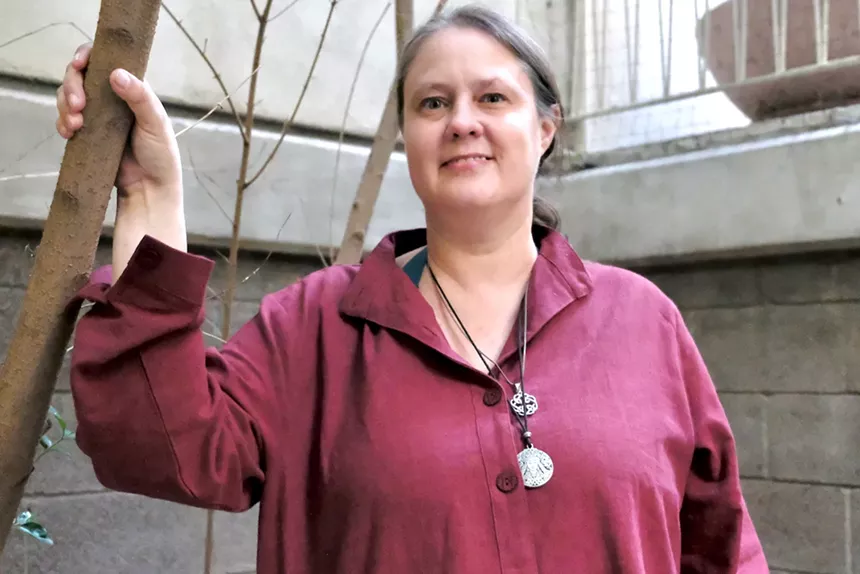
Elizabeth Venable, co-founder of Fund for Empowerment, said banning camping near shelters makes problems worse.
Katya Schwenk
Services first?
The new ordinance does reduce the severity of camping penalties from a class 1 misdemeanor to a class 3 misdemeanor. Fines for the first violation can’t exceed $100, but after that, the law allows for up to 30 days of jail time and fines up to $500.Though she’d just voted for the new ban, O’Brien said during the meeting that she hoped police and community partners wouldn’t be quick to enforce it. Instead, she wants police to offer unhoused people access to various services before enforcing the criminal code.
“The city of Phoenix will always lead with services first,” she said.
Phoenix police Cmdr. Brian Freudenthal, who spoke during the meeting, echoed that sentiment. “This isn’t going to eliminate the fact that we are going to go and move forward and try to connect that individual to a shelter,” Freudenthal said. While police “could just go out there and make an arrest,” he added, Phoenix cops instead will “choose” to connect unhoused people with shelter and “the appropriate services they need to end their homelessness.”
The county has made progress in placing more people in shelters. Data collected in January revealed that the number of unhoused people without shelter dropped by 17% from the previous year. Meanwhile, the number of unhoused people who were sheltered — that is, living in temporary but not permanent housing, such as a city-run shelter — increased 13%.
But Venable noted that an offer of shelter isn’t always on the table and services such as psychiatric care and detox programs are more likely. She also pointed out that the city is still under an injunction preventing it from enforcing the anticamping laws if there are no other public areas or appropriate shelters where unhoused people can sleep. On Tuesday, Phoenix filed a motion to dismiss the case.
That injunction — as well as Martin v. Boise, a 2018 case in the U.S. Court of Appeals for the Ninth Circuit that similarly ruled cities can’t enforce anticamping laws without enough homeless shelter beds — limits the city’s ability to act. To take councilmembers such as O’Brien at face value, the city would restrain itself before zealously enforcing the new ordinance.
But while responding to Pastor during the meeting Wednesday, Freudenthal may have let out a Freudian slip. How will the Martin v. Boise case affect the department’s enforcement actions?
“I can’t get into details on how we got around that,” Freudenthal said, “er, how we’re continuing to move forward with enforcement on this.”

